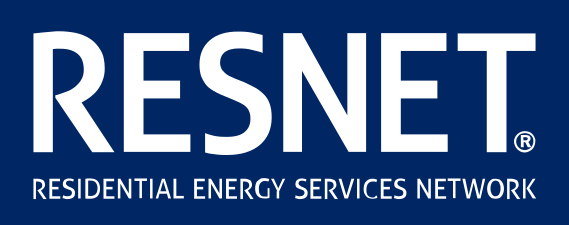Recommended Rating Field Inspector – RFI Courses
The Rating Field Inspector or RFI program is a nationally available program offered by RESNET to provide valuable field assistance to certified Home Energy Raters (HERS* Raters). Information about becoming a certified RFI is available by clicking on the RESNET logo or on the following link:
https://www.resnet.us/raters/rating-field-inspector/
Register for all seven courses below at once and receive a 5% discount off of all seven courses! Click here for the combo package registration.
Combustion Safety and Combustion Safety Testing
CEUs: 0.7 ICC
This course is about combustion safety in our homes and residences. We will define the Combustion Appliance Zone(s) (CAZ), discuss the combustion process and elements of combustion safety, understand the multiple combustion appliances we may have to evaluate as well as testing protocols and visual examination. This course covers all combustion appliances, whether they are located in a dedicated CAZ or not. Testing tools, calculations, interpretation of results, and incorporating safety into the scope of work are covered. ACCA Standards and RESNET Standards are included as a focus of this training.
Construction Math
CEUs: 0.8 ICC
There are many uses for Construction Math, from Building Science to Real Estate to Construction. This course will help you dust off and expand your math skills with a focus on residential construction. You will learn how to take accurate measurements in the field and how to determine accurate measurements on plans as well as how to calculate area and volume for basic and more advanced shapes and construction features such as hip roofs and spiral staircase or turret walls. Top it all off with a primer on generating scale drawings and what should be included in those drawings. If you work with any type of construction, this course will help you ensure your calculations are accurate.
Construction Primer
CEUs: 0.4 ICC
Construction basics and building components are covered in this course. We take a tour of construction plans and learn what to expect in the plan set. We cover the components that make up the building shell in details and review alternative building materials and techniques.
Energy Fundamentals
CEUs: 0.6 ICC
Energy Fundamentals is all about Energy! This short course covers the definition of energy including detailed energy terms and the language of energy. You will learn the laws of thermodynamics and take a deep dive into the concepts of heat flow, air flow, and moisture flow. These concepts are brought together with a discussion about how they impact human comfort, health and safety.
Indoor Air Quality and Mechanical Ventilation
CEUs: 0.5 ICC | 5 RESNET
This online, on-demand training class is targeted to HERS Raters, RFIs and Code Officials; but will be interesting to anyone who breathes while inside their residence. You will learn all about Indoor Air Quality (IAQ), carbon monoxide production, and mechanical ventilation systems. It also explains code calculations for required ventilation air and changes to those codes over the years, including how to take measured air infiltration into account and what you need to know to test and verify the air flow of mechanical ventilation systems according to the latest residential codes.
RESCAZ Simulation Exam Practice & Preparation
This is a preparation course for the RESCAZ Simulation Exam. This course walks you through the registration for the simulation tool, how to access it, practicing in the simulation, and scheduling the exam. This exam is required for the RESNET Certifications of HERS Rater and Rating Field Inspector (RFI). A complete walkthrough of the simulation tool and practice on simulated scenarios as well as ACCA Standards and a simulation checklist are included as part of this training.
Verifying Air Distribution and Air Barrier Systems in Residential Construction
CEUs: 0.9 ICC
Understanding, measuring and diagnosing air leakage of the duct systems and the building shell is the focus of this training course. The air distribution system and the home envelope are described and investigated along with their impacts on efficiency, safety and building durability. Tools and methods for measuring duct and air leakage and duct and air leakage calculations are explained. Discussions and examples include pressure influences and pressure diagnostics. This course is an excellent introduction to residential duct and air leakage for anyone considering performing this type of testing and diagnostics; or anyone who will be approving and overseeing others to perform this type of work.
